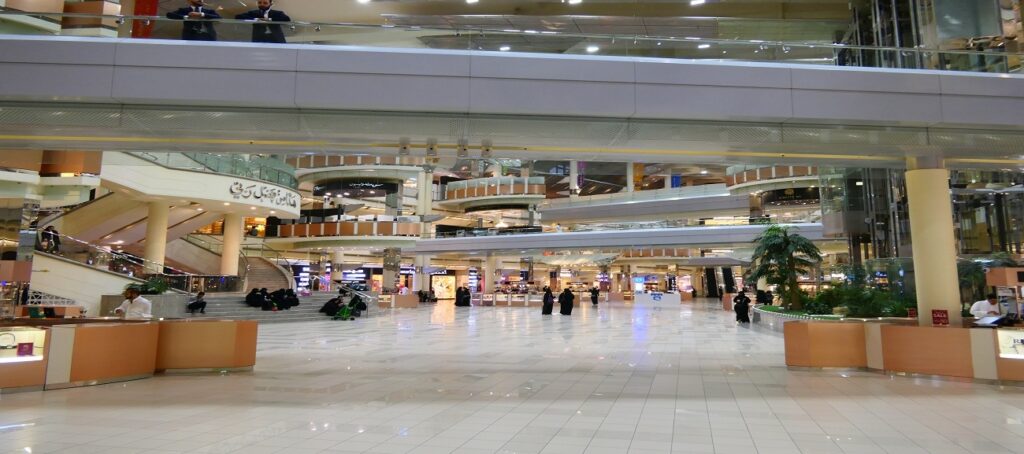

Shopping mall structures in Saudi Arabia vary in design and size, but they often share common features and characteristics. Here is an overview of the typical structure of shopping malls in Saudi Arabia:
Location: Shopping malls in Saudi Arabia are often strategically located in major cities and urban centers to ensure accessibility for residents and visitors. Popular cities for shopping malls include Riyadh, Jeddah, Dammam, and Khobar.
Architectural Design: Many shopping malls in Saudi Arabia feature modern and aesthetically pleasing architectural designs. The exteriors are often adorned with attractive facades, landscaping, and signage.
Size: Shopping malls in Saudi Arabia can range from smaller neighborhood malls to large-scale complexes. Some of the largest malls are massive entertainment and retail destinations with extensive floor space.
Anchor Stores: Major shopping malls typically have anchor stores, which are large, well-known retail chains that draw in customers. These stores can include department stores, hypermarkets, and electronics retailers.
Retail Outlets: Shopping malls in Saudi Arabia host a wide variety of retail outlets, including international and local brands. These outlets encompass fashion, electronics, cosmetics, jewelry, home goods, and more.
Food Courts and Dining: Most shopping malls feature food courts offering a variety of cuisines and fast-food options. Upscale malls may also have fine-dining restaurants and cafes.
Entertainment Facilities: Many malls incorporate entertainment facilities, such as cinemas, amusement parks, arcades, and bowling alleys, to attract families and visitors.
Services: Shopping malls provide various customer services, including ATMs, information desks, prayer rooms, and family restrooms. Some also offer valet parking services.
Parking: Adequate parking facilities are essential for shoppers’ convenience. Saudi malls typically have large parking areas, both open-air and covered, to accommodate the volume of visitors.
Events and Promotions: Malls often host events, promotions, and seasonal decorations to attract shoppers, especially during holidays and special occasions.
Security and Safety: Security measures, including surveillance cameras and security personnel, are in place to ensure the safety of shoppers and their belongings.
Accessibility: Accessibility for individuals with disabilities is a priority in Saudi malls, with ramps, elevators, and designated parking spaces available.
Operating Hours: Malls in Saudi Arabia usually have extended operating hours, staying open late into the evening. However, during religious holidays and prayer times, malls may close temporarily.
Cultural Considerations: Saudi malls adhere to cultural norms and regulations, such as gender-segregated areas, dress codes, and prayer rooms.
E-commerce Integration: Some malls have incorporated e-commerce and online shopping platforms to enhance the shopping experience.
